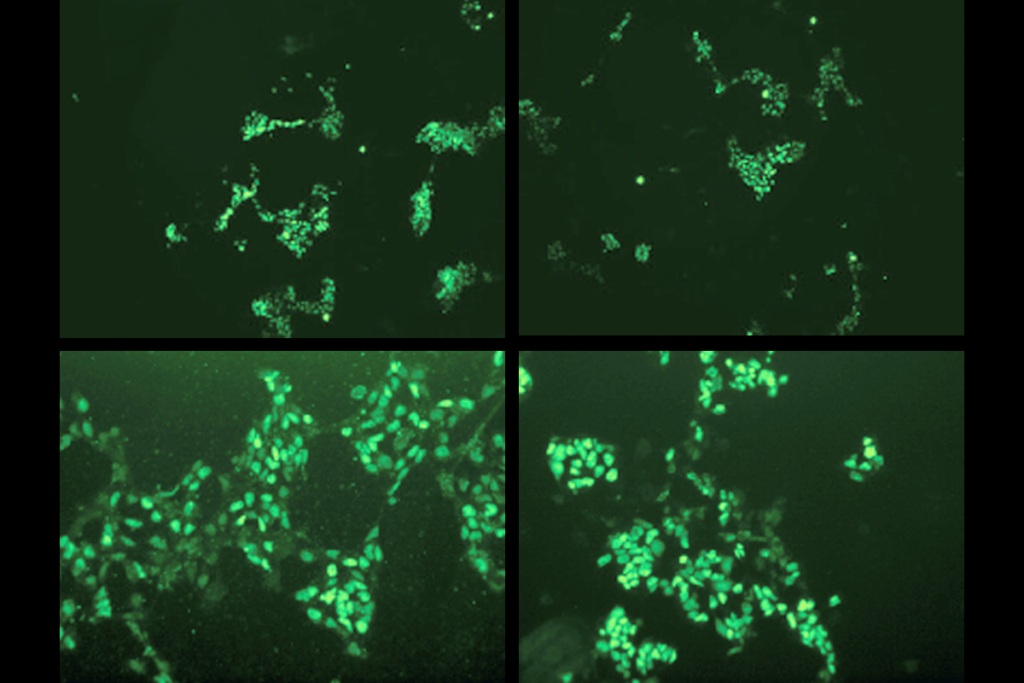It can be tough to prove a negative, as illustrated by a new null result that Spectrum covered last week.
Deleting autism-linked proteins called neuroligins from astrocytes did not influence synapse formation or the cells’ shape, according to the study, which countered an earlier paper’s conclusions. But outside researchers and those who conducted the previous study said the findings were inconclusive, in part because the new study did not provide enough evidence that the proteins had been completely eliminated in the mice.
“As a general case, it’s exceedingly difficult to convincingly demonstrate that something is not doing something,” Peter Scheiffele, professor of cellular and developmental neurobiology at the Biozentrum of the University of Basel in Switzerland, told Spectrum. In this case, the conclusion “hinges on being 100 percent sure you have completely abolished that gene product on the protein level.”
This newsletter’s latest batch of null results adds pieces of evidence in favor of “something not doing something” — from prenatal exposures not influencing children’s chances of autism, to brief periods of social distancing not affecting the functional outcomes of children with developmental disabilities.
Whether you are a first-time reader or have kept up with all 23 issues, thank you for reading. As usual, please send us any null musings or replications you’ve been ruminating on: [email protected]. We’d love to hear from you.
Adult outcomes:
The age at which a person learns that they are autistic does not predict their future quality of life or well-being, according to data from a pre-registered study that included 300 autistic people aged 18 to 68 years. Instead, their autism traits were the strongest predictor, with more traits linked to lower scores on measures of quality of life and well-being.
These null results — which run counter to previous research — don’t diminish the importance of early diagnosis, nor do they suggest that diagnoses should be disclosed to people later in life, the researchers caution.
The study was published in Autism in June.
Chemical comparison:
Potential links between prenatal exposures and autism abound in the research literature, but some associations — like those detailed in this newsletter’s December issue — don’t end up being supported by the preponderance of evidence.
Another prenatal exposure belongs on the “null” list, according to a new systematic review: endocrine-disrupting chemicals, such as phthalates; organophosphate and organochlorine pesticides; perfluoroalkyl substances (so-called “forever chemicals”) and polychlorinated biphenyls.
There is no overall connection between maternal exposure to endocrine-disrupting chemicals and the chances of autism or autism traits in children, suggests the new analysis, which included 27 human studies. Results were mixed, however, for exposure to phthalates — with four out of eight studies showing a positive, and one showing a negative, association with autism traits — and for exposure to polychlorinated biphenyls, with two of eight studies indicating a positive association.
The results were reported in Frontiers in Endocrinology in June.
Trial termination:
In yet another setback for the development of treatments for Angelman syndrome, drug giant Roche has discontinued its phase 1 trial of a gene therapy for the condition, citing underwhelming efficacy results. The treatment, called rugonersen and consisting of antisense oligonucleotides that boost the expression of the UBE3A gene, fell short of the company’s internal benchmark for pursuing future clinical trials, although researchers found “some encouraging effects” in participants’ electroencephalography signals, according to the company’s announcement.
The decision did not arise from safety concerns about the drug, according to the company’s June press release.
Et al.:
- In-utero exposure to marijuana is not linked with neuropsychological test scores during childhood, nor is it linked with autism traits at ages 19 to 20 years, according to a new study. The findings replicate previous null results that countered research linking maternal marijuana use during pregnancy with children’s neurodevelopmental outcomes, including autism. Paediatric and Perinatal Epidemiology
- Differences in the immune system are implicated in autism and fragile X syndrome. But inducing low levels of inflammation in a mouse model of fragile X — mice lacking the FMR1 gene — did not lead to any differences in sickness behavior compared with wildtype mice. The results suggest that the dysregulated immune function seen in the mouse model might not underlie sickness behavior, which includes lethargy, social withdrawal and depressed mood, the researchers wrote. Brain and Behavior
- A short period of social distancing during the height of COVID-19 in 2020 did not alter the level of physical activity or participation at home in children with autism or other developmental disabilities. Social support received by caregivers and the quality of life of their children also did not change during the four-month span. Journal of Intellectual Disabilities






